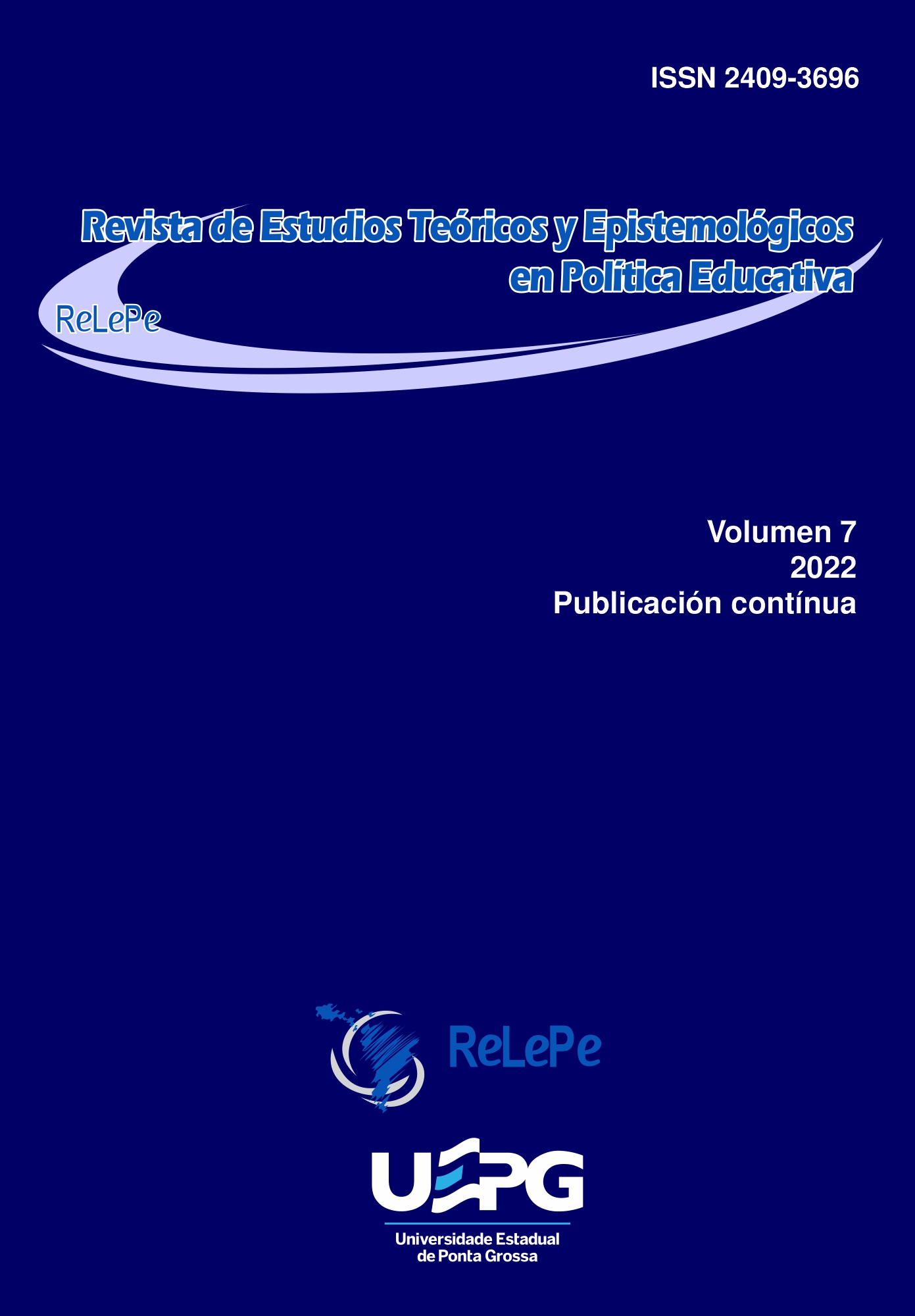Políticas educacionais e Nova Gestão Pública: aderências e distanciamentos nas redes públicas de Pernambuco e Goiás
DOI:
https://doi.org/10.5212/retepe.v.7.21159.012Abstract
A Nova Gestão Pública (NGP) tem se constituído como hegemônica na gestão da coisa pública, sem, no entanto, apresentar um formato único de implantação. Embora baseada em princípios de competitividade, resultados, avaliações externas e controle, seus contornos são diferenciados e várias experiências vêm sendo implantadas nos diferentes estados da federação tomando por base os preceitos da NGP. Essa nova racionalidade de gestão pública apresenta reflexos na forma de gestão e de regulação da educação, como alternativa eficiente e eficaz na busca por sua qualidade. Assim sendo, neste estudo, buscou-se identificar as semelhanças e as diferenças na implantação da NGP em Pernambuco e Goiás, estados com destaque nas avaliações de larga escala, por meio do discurso de gestores educacionais e diretores de escolas. Identificou-se ainda que, apesar de as duas redes estarem coadunadas com a racionalidade da NGP, a gestão democrática é enfatizada e colocada como importante elemento de qualificação da educação.
Palavras-chave: Nova Gestão Pública. Qualidade da educação. Teoria do discurso. Política educacional.
Downloads
Metriken
Downloads
Veröffentlicht
Zitationsvorschlag
Ausgabe
Rubrik
Lizenz
1. Autores mantém os direitos autorais e concedem à revista o direito de primeira publicação, com o trabalho simultaneamente licenciado sob a Licença Creative Commons Atribuição 4.0 Internacional que permite o compartilhamentodo trabalho com reconhecimento da autoria e publicação inicial nesta revista.2. Autores têm autorização para assumir contratos adicionais separadamente, para distribuição não-exclusiva da versão do trabalho publicada nesta revista (ex.: publicar em repositório institucional ou como capítulo de livro), com reconhecimento de autoria e publicação inicial nesta revista.
3. Autores têm permissão e são estimulados a publicar e distribuir seu trabalho online (ex.: em repositórios institucionais ou na sua página pessoal) a qualquer ponto antes ou durante o processo editorial, já que isso pode gerar alterações produtivas, bem como aumentar o impacto e a citação do trabalho publicado (Veja O Efeito do Acesso Livre).
__________
Los autores que publican en esta revista están de acuerdo con los siguientes términos:
1. Los autores conservan los derechos de autor y garantizan a la revista el derecho de ser la primera publicación del trabajo al igual que licenciado bajo una licencia de Creative Commons Reconocimiento 4.0 Internacional que permite a otros compartir el trabajo con un reconocimiento de la autoría del trabajo y la publicación inicial en esta revista.
2. Los autores pueden establecer por separado acuerdos adicionales para la distribución no exclusiva de la versión de la obra publicada en la revista (por ejemplo, situarlo en un repositorio institucional o publicarlo en un libro), con un reconocimiento de su publicación inicial en esta revista.
3. Se permite y se anima a los autores a difundir sus trabajos electrónicamente (por ejemplo, en repositorios institucionales o en su propio sitio web) antes y durante el proceso de envío, ya que puede dar lugar a intercambios productivos, así como a una citación más temprana y mayor de los trabajos publicados (Véase The Effect of Open Access) (en inglés).
__________
If the article is accepted for publication, copyright of this article will be vested in the The Journal of Theoretical and Epistemological Studies on Education Policy.

Este obra está licenciado com uma Licença Creative Commons Atribuição 4.0 Internacional.

This work is licensed under a Creative Commons Attribution 4.0 International License.

Este obra está bajo una licencia de Creative Commons Reconocimiento 4.0 Internacional.





